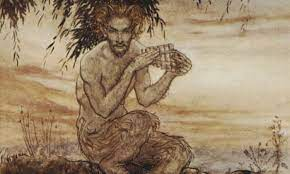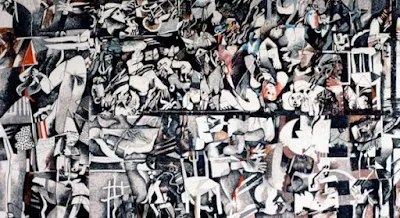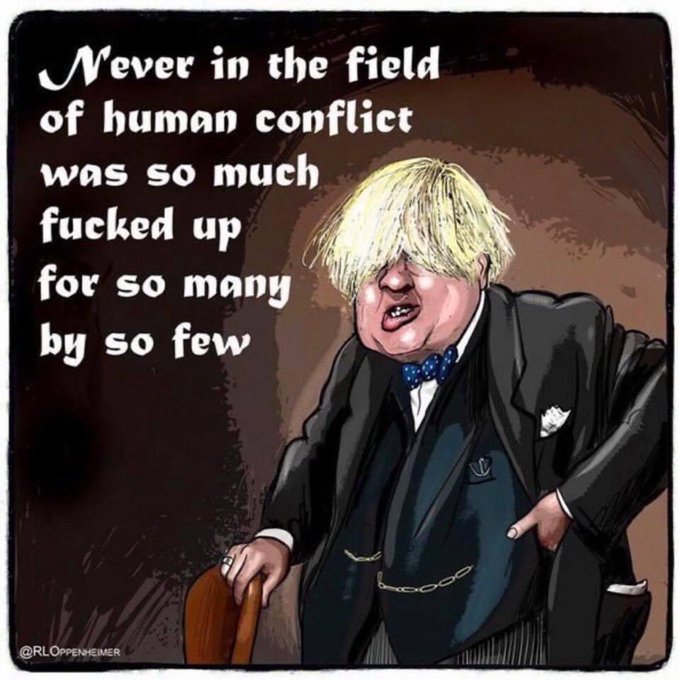Revolutionary Welsh Socialist Republican Harri Webb was a prolific writer of poems, prose and plangent political commentary, who became one of Wales's most popular poets, known for his
wit and erudition, for his historical perspective and strong awareness of
contemporary realities.
Harry (as his name was
originally spelt) was born on 7 September 1920 at Sketty, Swansea on the outskirts of the city into a working class family. When he was nearly two years old the family
moved to 58 Catherine Street
in the Sandfields, nearer the city centre, which remained the family home for over 70 years. His father worked at the Strand
electricity works, and later at Tir John Power Station. Harry went to Oxford
Street School
and Glanmôr Secondary School He left Swansea in 1938 at the
age of 18 after being awarded a scholarship to Magdalen College, Oxford
to study medieval and modern languages, a period of his life to which he made virtually no reference in his writings. He graduated with a third class degree in 1941, the death of his mother having severely affected his studies.
He joined the Royal Navy in 1941, where he served as an interpreter for the Free French in the Mediterranean, with
periods in Algeria and Palestine, and action in the north Atlantic. He was demobilised in Scotland in 1946.
After the war, he became politically active and joined the Welsh Republican Movement (which was wound up in 1957), and edited its
newspaper The Welsh Republican - Y Gweriniaethwr. Some members of the party were arrested for burning the Union Jack, and it faced accusations of initiating violence. They also conceived a Welsh republican flag, a tricolor with green, red and white bands.
After the movement's demise Webb was for a while an active member of
the local Labour Party, but then,appalled by its attitude on the question of
self-government for Wales, he joined Plaid Cymru. He edited the
party's newspaper and stood as its candidate at Pontypool in the general
election of 1970.
He took various jobs including working for Keidrych Rhys at the Druid Press in Carmarthen, until in
1952 he began working at Cheltenham Public Library, and like poet Philip Larkin
he became a librarian. Harri Webb was appointed Librarian at the Dowlais Branch Library in
Merthyr Tydfil in 1954, which started his close association with this
once radical town in Welsh history. The town, it's people and history feature in many of the poems written by Webb.
In 1956 he published Dic Penderyn and the Merthyr
Rising of 1831, a pamphlet in which he somewhat imaginatively retells
the story of the rebellion. As a Welsh republican he became a
well-known, popular, colourful character, who took an interest in the local
history of the town. He learnt Welsh in his early adulthood and adopted
the Dowlais dialect of the language, and was one of the founder members
and chairman of the eisteddfod in Merthyr Tydfil.
While in Merthyr Tydfil, Webb lived in Garth Newydd, an old house that
had been given to the town during the Depression, and subsequently
seemingly belonged to nobody.When Webb first moved in it was occupied by a group of pacifists. It became almost a nationalist commune and it was his home for 12 years where he was joined by
other patriots, including his friend Meic Stephens. The house became a
centre for Nationalist activities and the 'Free Wales' pirate radio was
broadcast from an attic in the house in response to the ban on political
broadcasts by Plaid Cymru. In the 1970's he took
part in the BBC Wales programme, Poems and Pints. While living in Merthyr Tydfil he was also associated with Meic Stephens in
the launching of Poetry Wales and they shared an interest in the writing
of topical songs and patriotic ballads.
After working in Dowlais for ten years, in 1964 Webb began work at Mountain Ash Library in the Cynon Valley
which was previously having been the largest borough in Wales without a
public library service. He made innovations such as lending LPs, and
buying books and periodicals to appeal to a female readership who were
gaining more independence in this era, to some criticism from those wary
of modernisation. He continued to work for Mountain Ash Library until 1974.
The library has a memorial plaque dedicated to Webb installed in 1997
reading 'poet and librarian, bardd a llyfrgellydd, 1920-1994' unveiled
by Meic Stephens and Gwilym Prys Davies.
Though he was an individualist, his political slant was one of uncompromising Welsh Republican Socialism. Harri Webb was a vivid platform speaker, reserving his most scathing
invective for his erstwhile comrades in the Welsh Labour Party with its
abysmal attitude towards self-government for Wales , though
capable of being equally trenchant about Plaid Cymru when he thought it
was failing to give a lead as a movement of national liberation, as at
the time of the drowning of the Tryweryn Valley after the building of a
reservoir by Liverpool Corporation. Webb was impatient with the Welsh Establishment and the London Welsh and detested the Tories with a fiery passion.
Strongly influenced by the Scottish poet Hugh Mac Diarmid, writer and nationalist politician,Webb's poetry came to
prominence during the 1960s, when political nationalism was beginning to make headway in the industrial valleys of South Wales, with the themes of the prevailing social conditions of
the time.
Having changed
his name to Harri, his first collection of poetry, The Green Desert, was published in 1969 and won a
Welsh Arts Council prize.Webb carried on living in Garth Newydd and commuting to the next valley until 1972, when he moved to Cwmbach near Aberdare, before finally retiring in 1974, the year that A Crown For Branwen appeared.
This was followed by Rampage and Revel in 1977, and finally Poems and Points in 1983. During the 1970s Webb began writing scripts for television and published
two collections of songs and ballads dealing with the more
light-hearted sides of Welsh history.
Webb's poetry which I am a huge admirer of is marked by his radical Welsh nationalist politics and a
quasi-Christian sensibility, and most were written out of a deep and passionate commitment to the cause of Welsh independence. In form it was often simple and comic, in
order that it might influence a wide audience. Few have written about Wales more intensively, steadily and
passionately, or with a greater variety of approach, of genre, of style,
than Harri Webb. He described himself as a 'poet with only one theme, one preoccupation', whose work is 'unrepentantly nationalistic'. The late Raymond Garlick said once "Webb is "the only poet of any real authority" in recent Anglo-Welsh poetry.
Few poets in recent times have achieved the popularity of Harri Webb.
Shortly after the opening of the Severn Bridge in 1966, Webb's "ode" to
the new edifice was to be heard quoted widely throughout South Wales:
Two lands at last connected Across the waters wide, And all the tolls
collected On the English side. The squib was stamped on a thousand
T-shirts and, for a while, lorry drivers coming out of Wales, with the
rhyme emblazoned on their chests, would shout it at the imperious
attendants who took their money.
Webb earned and enjoyed the status of People's Poet, thinking of himself
as belonging to the ancient tradition of the Welsh Bard, whose function
it was to rally his people against the foe, whether the English invader
or the servile, collaborating Welsh. Take this short one for instance.
Advice to a Young Poet - Harri Webb
Sing for Wales or shut your trap-
All the rest's a load of crap.
He could be bitingly satirical in style, his Synopsis of The Great Welsh Novel has bought me much joy over the years and in humorous verse describes the state of Welsh society and culture:
Dai K lives at the end of a valley. One is not quite sure
whether it has been drowned or not. His Mam
Loves him too much and his Dada drinks.
As for his girlfriend Blodwen, she’s pregnant. So
Are all the other girls in the village – there’s been a Revival.
After a performance of Elijah, the mad preacher
Davies the Doom has burnt the chapel down.
One Saturday night after the dance at the Con Club,
With the Free Wales Army up to no good in the back lanes,
A stranger comes to the village; he is, of course,
God, the well known television personality. He succeeds
In confusing the issue, whatever it is, and departs
On the last train before the line is closed.
The colliery blows up, there is a financial scandal
Involving all the most respected citizens; the Choir
Wins at the National. It is all seen, naturally,
Through the eyes of a sensitive boy who never grows up.
The men emigrate to America, Cardiff and the moon. The girls
Find rich and foolish English husbands. Only daft Ianto
Is left to recite the Complete Works of Sir Lewis Morris
To puzzled sheep, before throwing himself over
The edge of the abandoned quarry. One is not quite sure
Whether it is fiction or not.
The following was written by Harri Webb in 1966 as his response to
the by-election won by Gwynfor Evans in Carmarthen. It was the first
parliamentary election won by Plaid Cymru by its president Gwynfor
Evans. The tune for the song was composed by Meredydd Evans, although
it is usually sung unaccompanied and has been made popular by the well
known singer Heather Jones. It reflects the losses suffered by Wales
under English rule, but ends with a defiant challenge to redeem the
ancient language. The fourth verse of the song refers to the reservoirs
Elan and Tryweryn, valleys drowned to supply water to Birmingham and
Liverpool. Claerwen was the last dam built in Cwm Elan and the village
of Llanwddyn was drowned under Llyn Efyrnwy to supply water to
Liverpool City.
The song featured in the Green Desert, a performance and album of the poet’s work in 1972.
Colli Iaith - Harri Webb
Colli iaith a cholli urddas
Colli awen, colli barddas
Colli coron aur cymdeithas
Ac yn eu lle cael bratiaith fas.
Colli’r hen alawon persain
Colli tannau’r delyn gywrain
Colli’r corau’n diaspedain
Ac yn eu lle cael cleber brain.
Colli crefydd, colli enaid
Colli ffydd yr hen wroniaid
Colli popeth glan a thelaid
Ac yn eu lle cael baw a llaid.
Colli tir a cholli tyddyn
Colli Elan a Thryweryn
Colli Claerwen a Llanwddyn
A’n gwlad i gyd dan ddŵr llyn.
Cael yn ôl o borth marwolaeth
Cân a ffydd a bri yr heniaith
Cael yn ôl yr hen dreftadaeth
A Chymru’n dechrau ar ei hymdaith.
Colli Iaith
Losing language and losing dignity
Losing muse and losing bardism
Losing the golden crown of society
And in its place a shallow debased language.
Losing the old sweet-sounding strains
Losing the resounding choirs
Losing the harp’s skilful strings
And in its place the clamour of crows.
Losing creed, losing soul
Losing the faith of the old brave people
Losing everything pure and beautiful
And in its place dirt and mud.
Losing land and losing small-holdings
Losing Elan and Tryweryn
Losing Claerwen and Llanwddyn
And the whole country beneath a lake’s water.
Getting back from the door of death
A song and faith and respect for the old language
Getting back the old heritage
And Wales begins her own journey.
In his politically charged poem “Nightingales” Harri Webb invokes the
names of many Welsh rivers, some of which have become polluted, such as
the ‘sewered drabs’ of some of the south Wales rivers, while three
dammed, or possibly damned rivers are confluenced together as a little
triad; ‘Elan, Claerwen/Tryweryn of our shame.’
The fate of Tryweryn, and the inundation of the Welsh speaking
community at Capel Celyn to slake the city of Liverpool’s thirst for
water is well known and the name reverberates even today. But the
dispossessions in the catchments of the rivers Elan and Claerwen in mid
Wales are much less known, or remarked upon, or mourned.
Nightingales - Harri Webb
Once there was none and the dark air was dumb
Over the tree-stumps, the bare deforested hills.
They were a legend that the old bards had sung
Gone now, like, so much, so much.
But once I heard them drilling away the dark,
Llandaf was loud with them all of a summer's night
And the Great Garth rose like a rock from their storm.
This most of all I desire: to hear the nightingales
Not by Taff only but by all our streams,
Black Rhymney , sullen Ogwr, dirty Ebbw,
Dishonoured Tawe and all our severed drabs.
And others whose names are an uninvited music
(Wales, Wales, who can know all your rivers?),
The nightingales singing beyond the Teifi,
By Aeron, Ystwyth , Rheidol, and those secret waters
The Beacons hold: Rhiiangoll, Tawell, Crawnon,
By Hepte and Mellte outstanding Sewd Einion Gam
(But let them not sing by Elan, Cherwyn, Fytnwy
Or Tryweryn of the Shame.)
You who have outsung all our dead poets,
Sing for them again in Cwm Prysor and Dyffryn Ceiriog,
And humble Gwydderig and Creidiol, do not forget them.
And that good man, no poet, who gave us a song
Even sweeter than yours, sing for him at Llanrhaeadr,
And in Glyndyfrdwy, what needs to tell you to sing?
Sing in the faded lands, Maelienydd and Elfael,
And in the plundered cantrefs that have no name.
Come back and sing to us, we have waited too long,
Fr too long have not been worth singing for.
The magic birds that sang for heroes in Harlech
And hushed to wander the wild Ardudwy sea
And they of Safaddan that sing only for princes,
We cannot call them again, but come you
And fill our hearts like the hearts of other men.
Shall we hear you again, soon, soon?
The hallmark of his many essays and reviews over three decades was a pungent style designed to
provoke, scathing yet erudite. Deflated by the 1979 Devolution vote, he despaired that the
changes he sought would ever be made and endured a period of silence.
After suffering a serious stroke in 1985
which left him virtually housebound, sad and lonely,seeing few of his
old friends and virtually ceased to write poetry.He found some solace,
however, in the Anglican faith of his boyhood,
indulged his passion for the American cinema of the 1940s, and continued
to read extensively in the languages at his command. Although his head
was turned more than once, he never married.
His last public act was to announce, in 1985, that he would write no
more in English, adding with characteristic hyperbole that English was
"
a dying language" and that the only language for a true Welshman was
Welsh.
His close affinity to Swansea
stayed
with him until his final days , and after a long period of illness he
moved to St. David's Nursing Home in St.Helen's Road, Swansea.It was
here that he died in his sleep on the morning of 31 December 1994, a 'Swansea Jack' from birth to death.
His mother had died in 1939 while he was at
University, and his father in 1956, and both had been buried in St Mary’s
churchyard, Pennard. Harri Webb was buried in that same grave beyond the east
wall of the cemetery on January 6, 1995.
His Collected
Poems were published in December 1995, edited by his friend Meic Stephens,
owner of the copyright of his work, stands as testimony to his genius as a poet. In
his memory the Harri Webb Prize for poetry was established. Long may he be remembered for his devotion to Welsh culture and for his radical contribution that.focused his articulate attention on the glories, the particularities and the plight of his nation.






















.jpg)
